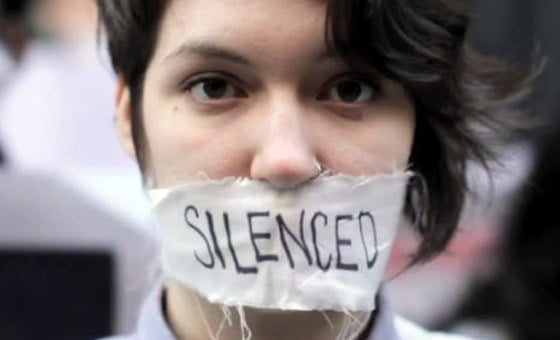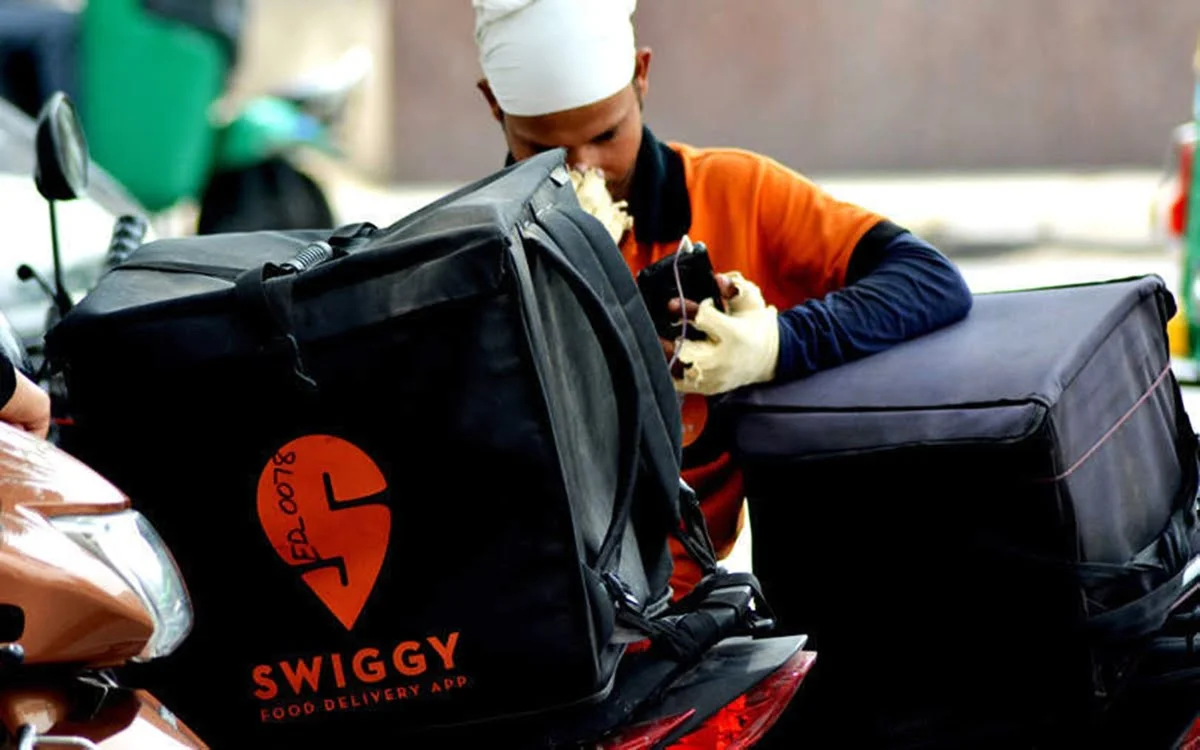Posted by Shivangi Misra
Moving the court to silence the media is making the headlines in the allegations of sexual harassment against the Oscar-winning film producer Harvey Weinstein. His team of lawyers who were appointed well before the New York Times reportage hit the stands were quick to respond with a statement on the article with a threat of legal action,
“It relies on mostly hearsay accounts and a faulty report, apparently stolen from an employee personnel file, which has been debunked by nine different eyewitnesses. We sent the Times the facts and evidence, but they ignored it and rushed to publish. We are preparing the lawsuit now. All proceeds will be donated to women’s organizations.”
His lawyers have not released any statement so far as to which part of the reportage against Weinstein is defamatory or which fact has the Times ignored. It is interesting to note that while the lawyers were prepared with the threat of a defamation lawsuit, the official response of Weinstein was released (sadly misquoting Jay Z) admitting to causing pain and how he is “trying to do better”.
If there is an admission of guilt, then the reason to engage Times in a defamation lawsuit appears to be an aggressive strategy to drain them of resources and time. In his short response, he also mentions his charities to women organizations, how it helps his legal claims is still unclear.
Classically SLAPP (Strategic Lawsuit Against Public Participation) suits have taken the form of defamation suits against individuals or groups that voice their opinion against a powerful entity. The common Modus Operandi is to bury the complainant in legal costs and disproportionate legal exercises till they give in or are forced into bankruptcy. The abuse of legal remedies such as defamation suits to force silence in sexual harassment cases is often the reason behind “why don’t the women speak up when it happened?”
After years of well-known intimidation tactics, institutional bias and power imbalance in legal infrastructure, not much has evolved with respect to developing a legislative strategy to counter SLAPP. The recent #metoo campaign, started by Tarana Burke in 2007 has gained sudden momentum in 2017, triggering an overwhelming response from women around the world and a few good men, revealing the disturbing number of women go through sexual harassment. Women sharing their experiences anonymously at a later stage on platforms like Facebook or anonymous blogs is the not-so-shocking outcome of such legal threats.
Let us look at some of the prominent and recent cases where the pattern of legal abuse was easily detectable.
It is significant to note that Weinstein is engaging Times in a SLAPP suit when a high number of women have admittedly been silenced through Non-Disclosure Agreements creating an unequal playing field. If Weinstein is truly on his journey to “Deal with the issue head-on”, he should first publicly release the women from the NDA enabling them to speak freely about their experiences of unwanted physical contact with him. The settlement to keep silent, on many occasions to protect careers and fear of public shunning inadvertently protects criminal activity.
It is ironical that currently there exists a legal landscape with a possibility of criminal activity going unchecked if the silence is paid for (NDA), but on instances of speaking out the individual could be punished through painful years of litigation. Legislative development in curbing NDA would be a welcome step in cases of harassment and discrimination.
In an array of similar cases, where SLAPP suits have created a legal nuisance to silence voices of harassed women, is the former executive vice chairman of The Energy and Resources Institute (TERI), Rajendra Pachauri filing a civil defamatory suit against renowned human rights activist and lawyer Vrinda Grover. She came forward with the statements of survivors of sexual harassments by Pachauri in the press when the police refused to file an FIR.
The move by Pachauri was widely criticized by activists and civil society members. The intention of the defamation suit i.e to intimidate women was apparent in the very nature of the suit, as she later pointed it out to Huffington Post that, “The larger point here is that these kind of misogynistic campaigns are efforts to silence women. The court should take serious note of this and not even entertain such petitions.”
Ms Grover is one of the many recipients of similar attacks on free speech labelled as SLAPP suits. Television activist John Oliver is facing defamatory charges by Robert Murray, the head of a coal-based energy company which was exposed in an episode of Last Week Tonight with John Oliver as the cause of a mining accident that killed nine people. A deep-pocketed corporation attempting to silence the critics should not go unnoticed by the courts but the increasing presence of such litigation speaks to the contrary.
Manik Katyal, a photographer of Emaho magazine against whom twenty-six women came out with horrific stories in a blog called ‘I was harassed by Manik Katyal’ charged the women with defamation.
There is a pattern that emerges out of these cases, where the goal is not to advance rule of law but to create hindrance in due process. Recently, a news website The Wire was charged with defamation by Jay Shah. The website had released a report detailing the sudden increase in turnover of a company owned by Jay Shah after the Narendra Modi government came to power. Journalists’ Union condemning the move said,
“There is something particularly undemocratic about the use of defamation suits and prosecutions when they seek to protect those in power. When used against the media they are even more distasteful, for the aim then is not only to intimidate but also to prevent the people from access to information.”
The Wire has been vocal about the attempts Jay Shah has made to silence the independent news agency. There is an ex parte order against them preventing the website from publishing any content “directly or indirectly” till the defamation suit is disposed of. The article in question is still hosted by the Wire as they refused to be gagged by an order and that they were “neither served notice nor given an opportunity to be heard before this ex-parte injunction was sought and granted”.
In the same arena of high profile cases, Indian Institute of Planning and Management (IIPM) took the magazine Caravan to court for defamation. Justice Madan Lokur called the defamation suit ‘bogus litigation’. The Caravan is no stranger to such suits, in 2015 ESSAR moved the court against them for carrying an exposè on ESSAR’s questionable internal activities.
The ESSAR Group filed defamation charges against Greenpeace in an attempt to stifle the voices of the environmental activists. This was a result of Greenpeace speaking against the allocation of land to the company and ESSAR trying to browbeat the campaign. ESSAR claimed that the locals were being influenced against them. Greenpeace responded with,
“It is a classic case of corporate culpability and steamrolling by which they seek to silence all those who make genuine criticism of their environmentally degrading, ecologically damaging actions against the interest of thousands of villagers whose livelihood and culture depends on the forests.”
The court rejected ESSAR’s interim relief request to restrain Greenpeace from speaking out against its mining plans.
Also Read: My Modesty Is Not Outraged, I Am! Patriarchy In The Language Of Law
In a setback to free speech, Supreme Court of India in Subramaniam Swamy Vs. The Union of India, concluded that Right to Life includes Right to Reputation in a petition challenging the constitutionality of criminal defamation under Sections 499 and 500 of the Indian Penal Code. The Court observed that “Reputation” of one cannot be allowed to be crucified at the altar of the other’s right of free speech.”
With this dangerous move, the Apex court elevated right to reputation to the status of a fundamental right. The judgment, which had the potential of protecting the citizens from state persecution, ended up harming freedom of speech and expression enshrined in the Indian Constitution.
Earlier tagged with the Subramaniam Swamy case was the Greenpeace activist Priya Pillai’s petition raising the question of a corporation’s ability to invoke the criminal defamation law. Priya Pillai in a separate petition, pointed out that the,
“…the respondent has embarked on a strategy designed to hijack the Indian justice system, to meet its own private ends, using criminal defamation provisions in the instant case not only against the petitioner but also against the Executive Director of Greenpeace, an international organization which works globally to promote conservation of nature…”
The petition identified the SLAPPs employed by ESSAR,
“Criminal defamation provisions result in conferring an uncanalised and arbitrary power not only in the hands of executives but also in the hands of people with greater resources to deploy SLAPPs such as the respondent”
The petitioner’s petition was dismissed by a two-judge bench, which declared,
“In view of the judgment of this court in Subramanian Swamy v. Union of India…we are not inclined to go into the validity of provisions of Sections 499 and 500 of the IPC again.”
The reasoning given by the same court in Subramanium Swamy held that the right to reputation is included in the right to dignity, did not take into account that for corporations reputation is an asset and not a question of dignity. Dismissal of the aforementioned petition was a retreat in constitutional jurisprudence by the Supreme Court; encouraging corporates to file SLAPPs against activists who are bringing attention to issues of high public significance.
It could be seen as a lost opportunity for the court to address the needs of a liberal nation where dissent and public discussion on subjects of public importance must be openly discussed. If we do not identify this form of censorship in our democracy the price to pay will be powerful elite versus the critics settling scores.
The number of cases speak for themselves and there is a reason to believe that only high profile cases make the news. The number of casualties arising from SLAPP suits which are in operation is dangerously unknown.
With the growing number of SLAPP suits, twenty-eight states in the United States have enacted Anti-SLAPP legislations. The laws provide for individuals and bodies to challenge the SLAPP suit early on in the proceedings to test if the legal action is for the purpose to disable freedom of speech and expression. This is the kind of protection that can assist in speedy trials and not get absorbed by frivolous suits harming the critics.
Considering that the trend in USA and India not far behind, it is critical that SLAPP suits be denounced with strict measures as it causes a heavy burden on ordinary citizens and especially women. The case of Harvey Weinstein has become the epicentre of sexual harassment news and the impact it had on thousands of women should not go into the black hole of 24-hour news cycles. Apart from showing solidarity with the women, protecting them from SLAPP suits should be the next urgent step.
Internationally, the issue has been addressed as a violation of freedom of speech and expression. Annalisa Ciampi, United Nations Special Rapporteur on the rights to freedom, peaceful assembly and of association, recommends in the Office of the High Commissioner for Human Rights (OHCHR) report,
States should protect and facilitate the rights to freedom of expression, assembly and association to ensure that these rights are enjoyed by everyone by, inter alia, enacting anti-SLAPPs legislation, allowing an early dismissal (with an award of costs) of such suits and the use of measures to penalize abuse.
All-State actors – legislative, judiciary, executive, regulatory – at any level should work towards facilitating an environment where criticism is part of a healthy debate on any issues of public or societal relevance.
Private companies should refrain from the use of civil lawsuits as a means of shutting down public participation and critical advocacy.
A UN report of the former Special Rapporteur on the rights to freedom of peaceful assembly and of association, Maina Kiai recommended
“(c) To ensure that no one is criminalized for exercising the rights to freedom of peaceful assembly and of association, nor is subject to threats or use of violence, harassment, persecution, intimidation or reprisals;”
Amnesty International India in 2014 in its submissions to the Law Commission of India recommended, “The Indian Penal Code should allow for the defence of truth in all circumstances without imposing any further requirement, and the defence of reasonable efforts to ascertain the truth in matters of statements relating to public interest.”
In cases where a SLAPP suit is initiated, the power imbalance is too apparent to ignore. It is prima facie mala fide to begin with, which should both be the reason and the test for it to be rejected by the Courts. At the beginning of defamation litigation, it should be put to the test of being identified as SLAPP or not.
The judicial landscape has failed if it is unable to protect the women who are playing the role of whistleblowers and are in danger of being legally abused by the rich. The disheartening consequence of some women speaking out against their harassers is attached to a fear of being wrapped in litigation initiated and orchestrated by the powerful.
The trick is to be hyper-vigilant of the phenomenon; law being used as a tool of repression against social movements and when left behind the walls of courtrooms, it may go unchecked. Addressing the lacunae in defamation laws globally can be the first step in the direction of nourishing women rights and social movements.
Also Read: The Farooqui Judgment: A No Is A No – No Ifs, No Buts
Shivangi Misra is a Delhi based lawyer and works with Lawyers Collective.
This article has been re-published with permission from Lawyers Collective.
Featured Image Credit: The Reductress
About the author(s)
Lawyers Collective is a human rights NGO, which has worked for the rights of the most marginalised groups. It was founded by Senior Advocates Indira Jaising and Anand Grover in 1981. It has been instrumental in the drafting, advocacy and strategic litigation of the Domestic Violence Act and the HIV/AIDS Act.




